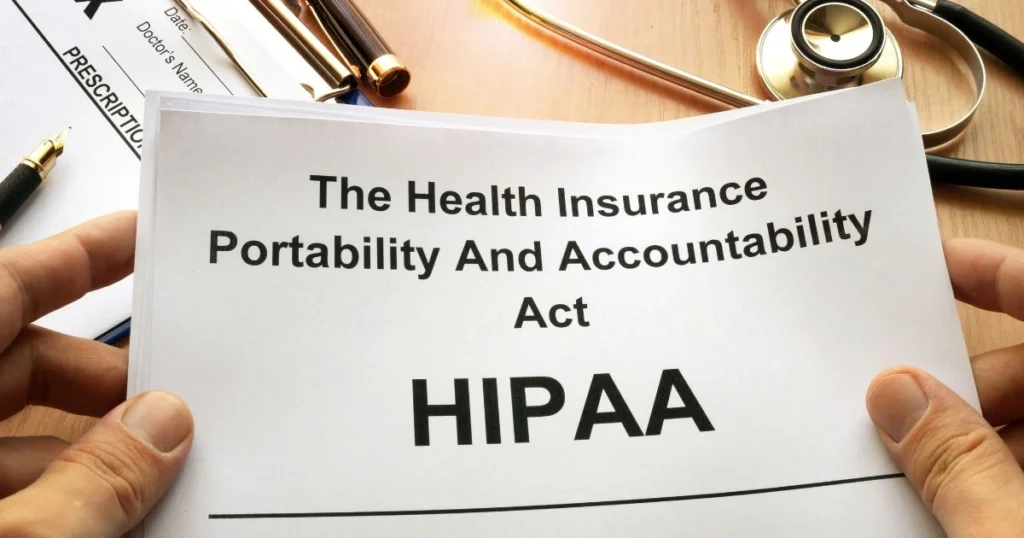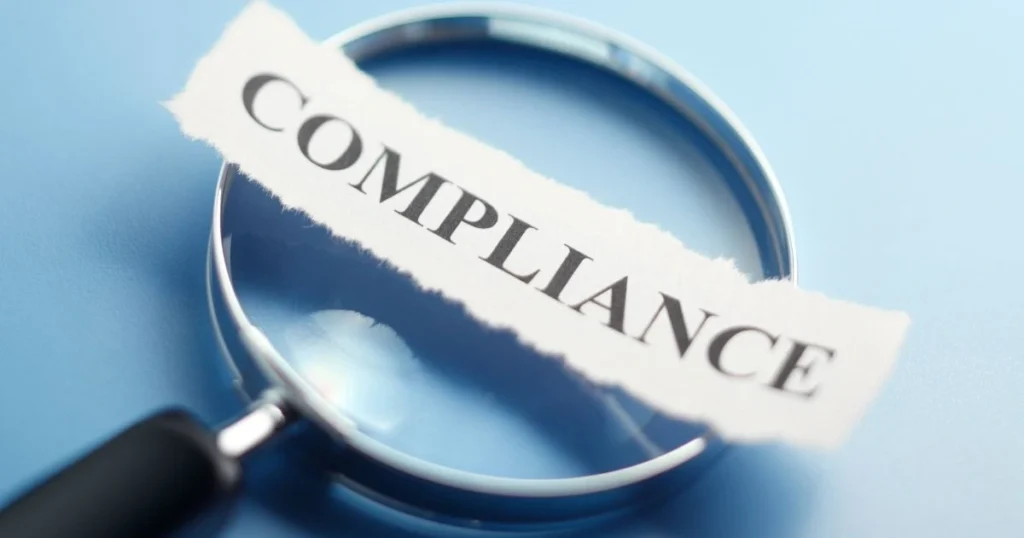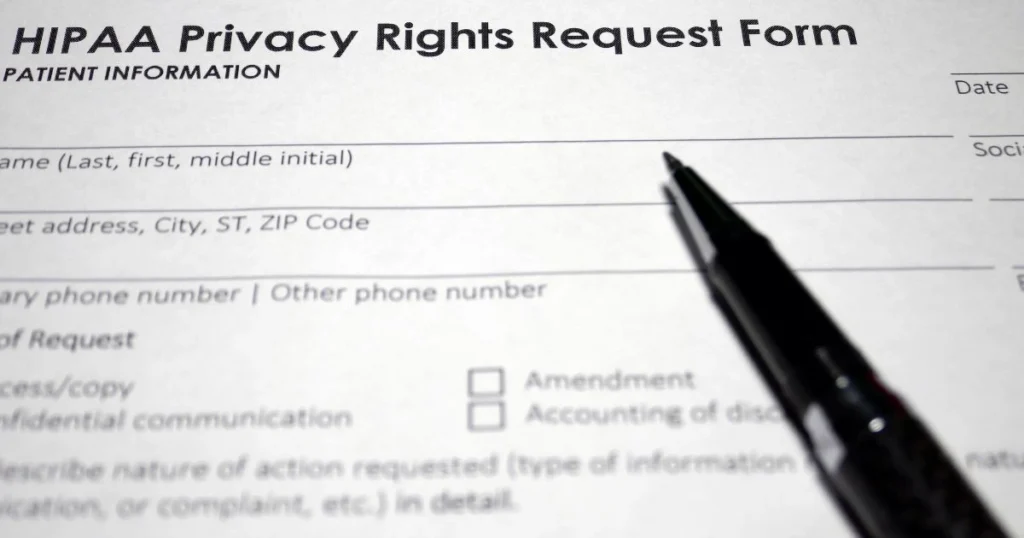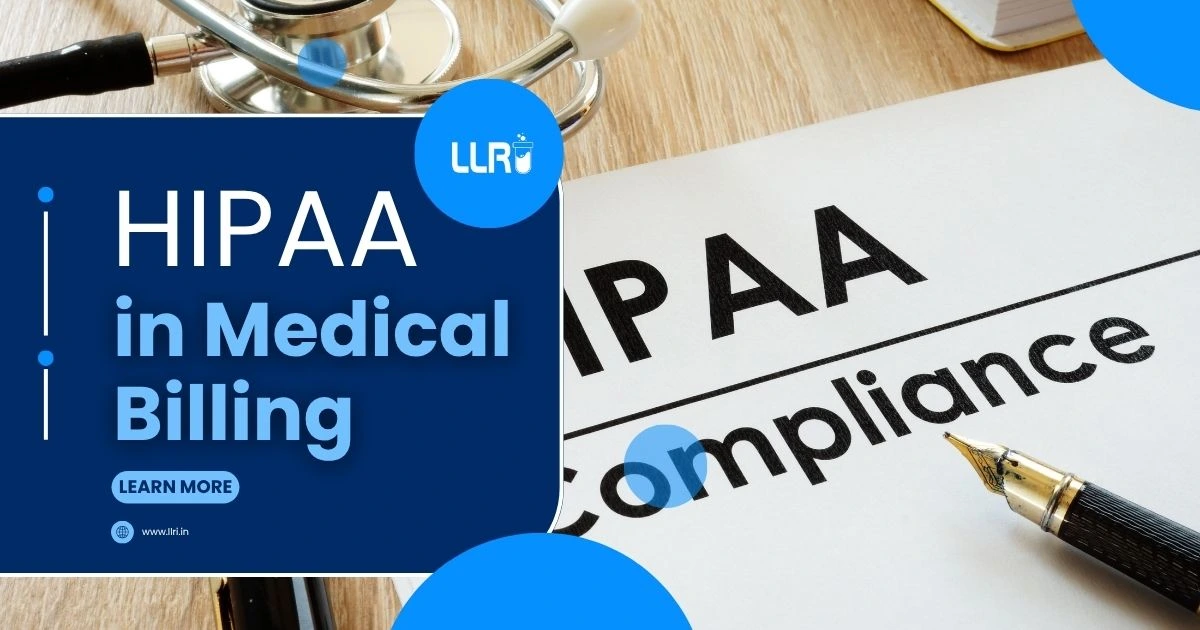The U.S. Health Insurance Portability and Accountability Act (HIPAA), enacted in 1996, was established to safeguard patient privacy and secure health information. HIPAA sets strict standards for managing, transmitting, and storing protected health information. HIPAA in medical billing applies to healthcare providers, insurance, and other organizations handling patient health information.
HIPAA regulations uphold patients’ rights to confidentiality and empower them to control the disclosure of their health information, fostering trust in the healthcare system. This act consists of various key components, like the privacy rule, which sets standards for the protection of health information, and the security rule, which creates to protect electronic health information. HIPAA has evolved to address the growing concerns of digital data security and privacy in healthcare over the years.
The protection of patient details is non-negotiable in today’s healthcare landscape, making HIPAA compliance necessary for any medical billing process. As healthcare organizations increasingly turn to outsourcing medical billing services in India, understanding and adhering to HIPAA rules is crucial.
Learn about HIPAA in medical billing in this blog.
What is HIPAA in Medical Billing?
HIPAA in medical billing refers to the particular regulations that apply to the billing procedure in order to ensure patient details are saved. These regulations specify that any information related to a patients’ medical treatment, diagnosis, and billing must be handled with the highest security and privacy.
So, for medical billing professionals, understanding and implementing these rules is crucial to maintaining compliance.

Understanding HIPAA
The HIPAA full form in medical billing stands for Health Insurance Portability and Accountability Act. It is a federal law in the United States that sets standards for the privacy and security of personal health information (PHI). HIPAA explains a set of rules and guidelines to protect the privacy and security of a patient’s health information. Simultaneously, it allows doctors and hospitals to use this information to treat patients, bill for services, and run their healthcare businesses.
Additionally, Health Management Information System (HMIS) providers offer the capability to store and easily access patient details. To ensure data security and compliance with HIPAA regulations, it’s important to select a reliable HIMS provider for healthcare facilities.
HIPAA Compliance in India
India does not have a specific law equivalent to HIPAA. However, several regulations govern healthcare data protection:
- Information Technology (Reasonable Security Practices and Procedures and Sensitive Personal Data or Information) Rules, 2011: Provides guidelines for handling sensitive personal data.
- Personal Data Protection Bill, 2019: Aims to provide a comprehensive framework for data protection in India.
Compliance Standards
Indian healthcare providers should adhere to:
- Data Privacy: Ensure compliance with IT rules, 2011 and anticipate the Personal Data Protection Bill.
- Security Standards: Execute robust cybersecurity measures to protect patient data.
- Global Standards: Adopting standards like ISO 27001 for information security management can enhance compliance.
Suggestion for Indian Healthcare Providers
- Enhance Data Privacy : Accomplish and comply with India’s IT rules and prepare for the personal data protection bill.
- Strengthen Security: Use strong cybersecurity measures and align with ISO 27001 standards for detailed security.
- Adopt Global Best Practices: Evaluate and, where relevant, align with international standards like HIPAA, mainly while dealing with global clients or patients.

HIPAA Rules and Regulations
HIPAA was originally introduced in 1996 to protect health insurance coverage for employees that lost or changed jobs. HIPAA regulation is made up of a number of different HIPAA rules. Presently, HIPAA also includes mandates and standards for the transmission and protection of sensitive patient health details by providers and relevant health care organizations.
The rules of HIPAA include:
- Privacy rule: The HIPAA privacy rule establishes national standards for protecting people’s medical records and other personal details. This applies to healthcare providers, health plans, healthcare clearinghouses, and receive a copy of protected health information (PHI).
- Security rule: The HIPAA security rule specifically focuses on protecting Electronic Protected Health Information (EPHI) by setting guidelines for establishing technical safeguards within an organisation’s IT infrastructure. This aims to ensure all staff must be trained on the policies and procedures annually, with documented attestation.
- Breach notification rule: It complies with businesses on how to respond to a data breach and guidelines on reporting of breach.
- Transaction rule: This has been introduced to protect healthcare services and other business parties to take the required cybersecurity measures to protect ePHI while other transactions are performed.
- Enforcement rule: The HIPAA enforcement rule establishes directives around compliance, investigation, and penalties for violation.
Importance of HIPAA in Healthcare
HIPAA compliance is serious in the healthcare sector for various reasons:
- Safeguarding patients’ privacy and data security: Make sure that the sensitive health information of patients is kept safe and confidential.
- Establishing patient and healthcare provider trust: Patients share necessary health information when they trust that their data is safe and protected.
- Financial and legal implications of non-compliance: If the healthcare providers are found in violation of HIPAA regulations, they will face substantial fines and legal action.
Ensuring Medical Billing Compliance
The accomplishment of HIPAA compliance in medical billing involves various steps:
- Employee training and education: Everyday training sessions to make sure all staff members are knowledgeable about HIPAA regulations and requirements for compliance.
- Safe data storage and transmission: Implementing encryption and safe communication channels to protect data at the time of transmission and storage.
- Regular audits and examinations: Conducting regular audits to identify and address potential exposure in the billing process. Technology also plays a very important role in maintaining compliance. Using safe billing software and systems help automate compliance checks and protect against data breaches.
Difference between HIPAA and FERPA
HIPAA and FERPA both are nationally mandated laws that protect information. HIPAA keeps medical records safe and secure, whereas FERPA keeps education records private.
However, there are some areas of overlap, such as student medical records. In these, FERPA only applies to the release of student medical records, and HIPAA does not apply to records covered by FERPA. Likewise, FERPA laws will never apply to non-students of educational institutions covered by FERPA regulations. Also, it is important to note that, while some educational institutions may treat non–students on campus in health or counseling centers, these objects are not subject to HIPAA unless healthcare information is transmitted.

Billing details protected under HIPAA
The Protected Health Information (PHI) has any facts that can be used to recognize a patient and relates to their illness, treatment, or payment for healthcare services. This includes patient names, medical records, billing and payment details, insurance information, and safeguarding billing information.
To make sure billing details are protected inside HIPPA, healthcare providers need to follow best practices, such as:
- Implementing access controls:
- Limited access to diplomatic details to authorized personnel only.
Conclusion
To reduce the scale of the medical debt problem, the HIPAA compliance measures have been introduced. By prioritizing HIPAA compliance billing practices, healthcare providers can safeguard patient information, maintain trust, and enhance their operational efficiencies. While HIPAA is not a mandatory standard for Indian healthcare, adopting the high standards it sets for patient data protection would benefit Indian healthcare providers.

